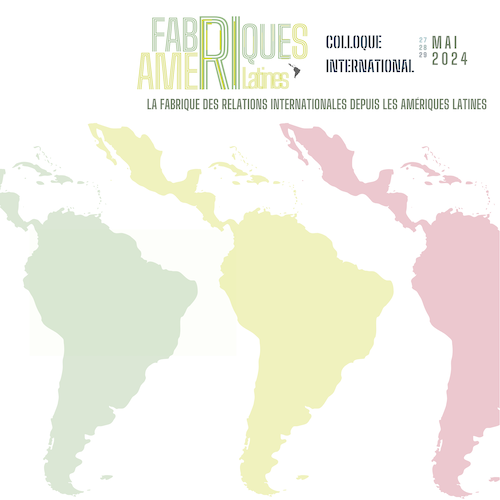
Conferences > 🌍 The mediators between Africa and Latin AmericaConference"The mediators between
The relationships between Africa and Latin America during the Cold War have been a little-explored topic in historiography. However, in recent years, there has been a significant historiographical renewal regarding the Cold War, particularly in the exploration of the Third World and Third-Worldism, areas in which Latin America had previously been absent. The research of Martin Bergel and Melanie Toulhoat fits into this emerging dynamic. In this discussion panel, the relationships between Latin America and the Third World will be explored from the perspective of intellectual and educational exchanges. Various aspects of the world of education will be addressed, including university education, the publishing industry, literacy programs, and the school systems. *** Moderation Discussion Speakers Martin Bergel [CONICET] Academic mobilities practices concerning Latin America have tended to be oriented almost exclusively towards the United States and certain European countries, and to a lesser extent between countries in the region. Intercontinental trade between the regions that we now refer to as the Global South have been much more limited. From a perspective of the history of publishing, this work reconstructs the first collection of books in Latin America intented specifically for the countries of Asia and Africa. Created in 1958 with the aom of having a large scientific dissemination program that would link the University to society, and closely following the model of the Presses Universitaires de France (PUF), since 1962, the Editorial Universitaria de Buenos Aires has adopted its "Biblioteca de Asia y África", one of the greatest innovation in its vast catalog. However, if the collection was bord with the same general objective of disseminating knowledge which included all areas of science, by leading with a political sensitivity linked to the theme of the revolution, specific to the Third World imaginaries then in trend. Thus, it anticipated the tensions between science and politics that arose in Argentina following the 1966 coup d'État.
*** Mélanie Toulhoat [Institut d'histoire contemporaine, Université Nouvelle Lisbonne] *** Selective bibliographies *** |


